Jelly babies continue to delight candy enthusiasts worldwide with their soft, chewy texture and vivid flavors. Over the years, several brands have mastered the art of creating these delightful treats, each adding their unique twist to the classic recipe. Whether you crave the traditional taste or are on the hunt for innovative flavors, there is no shortage of options to satisfy your jelly baby cravings. Join us as we explore some of the best brands that have captured the hearts and taste buds of jelly baby lovers around the globe in the list below.
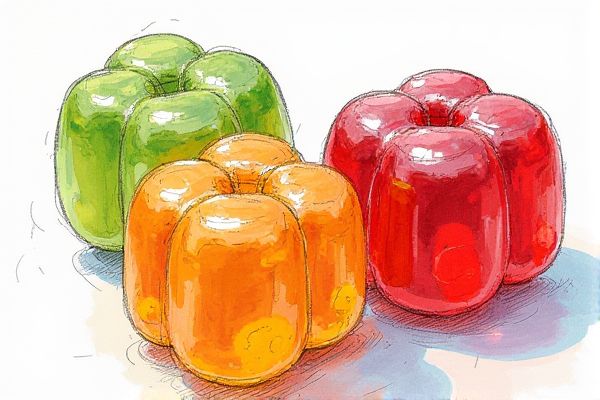
Illustration of jelly babies
Best brands of jelly babies in 2025
Bassett's
Bassett's is a renowned brand in the jelly babies market, known for its high-quality and diverse range of products. Since 1918, Bassett's has been mass-producing Jelly Babies, initially marketed as "Peace Babies" to mark the end of World War I. The brand has a significant market share, with Mondelez's relaunch of Maynards Bassetts in 2016 aiming to capture 18.4% of the market, valued at PS127.9 million. Bassett's Jelly Babies are distinguished by their individual names, shapes, colors, and flavors, and the brand switched to using only natural colors and ingredients in 2007. This commitment to quality and innovation has made Bassett's a favorite among consumers. For more insights into their delicious range, visit their official website.
Haribo
Haribo is a leading producer of jelly babies and gummy bears, known for its significant market presence and growth. In the US, Haribo's sales of non-chocolate chewy candy, including its popular Gold Bears, increased by 32.5% to $113.8 million in the first half of 2017, helping the brand gain a 1.3% market share in the segment. Globally, Haribo controls over a third of the total market in France, valued at EUR705 million, with sales rising to EUR248 million in 2018. The company's efficient supply chain and new forecasting technology have improved forecast accuracy to 80% and service levels to 99%. Haribo's products are available in over a hundred countries, solidifying its position as a major player in the confectionery industry.
Maynards
Maynards, now unified with Bassetts under the Maynards Bassetts brand, is a leading producer of jelly babies, known for its high-quality and diverse range of adult candies. Following the relaunch in 2016, the brand aimed to reinvigorate the adult candy market, holding an 18.4% market share and a value of PS127.9 million. The brand's strategy includes a packaging redesign and the introduction of new products like Bertie's Jelly Mix. Despite the overall adult candy sector being in decline, Maynards Bassetts remains a significant player, driven by adult consumers purchasing candies for themselves. This move reflects the brand's commitment to innovation and market growth.
The Natural Confectionery Co.
The Natural Confectionery Co. is a standout producer of jelly babies, having transformed the brand from Binka's through successful re-branding, new packaging, and integrated advertising campaigns. This strategy led to a significant increase in market share by 10 times and a surge in sales from $1 million to over $75 million. The company's focus on using no artificial colors and no artificial flavors resonated strongly with consumers, particularly mothers seeking healthier treats for their children. This approach helped the company become a dominant category leader. The rebranding and marketing efforts were instrumental in revitalizing the brand's presence in the market. For more details on their impressive transformation, check out The Ultimate Comeback Story.
Rowntree's
Rowntree's, although not the producer of Jelly Babies, is a renowned brand in the confectionery industry, particularly famous for its jelly sweets such as Fruit Gums, Fruit Pastilles, and Jelly Tots. These products have been favorites among Britons, with Fruit Pastilles and Fruit Gums ranking high in popularity, as 62% and 55% of Brits, respectively, voted them among their best-loved sweets. Rowntree's has a long history, dating back to 1881 when it introduced Fruit Pastilles, and has since become a significant player in the global confectionery market. The brand continues to innovate, with new products like Rowntree's Randoms introduced in 2009. Despite not producing Jelly Babies, Rowntree's is a staple in British confectionery. For more information about the brand, visit Rowntree's Wikipedia page.
Pascall
Pascall, a renowned brand in the confectionery industry, is celebrated for its high-quality jelly babies that have captured the hearts of consumers worldwide. Known for their vibrant colors and diverse flavors, Pascall's jelly babies are a favorite among both children and adults. The brand's commitment to innovation and consumer preferences has contributed to its significant market share, with the global jellies and gummies market expected to grow at a CAGR of 3.8% from 2025 to 2030. In regions like North America, where Pascall has a strong presence, the brand benefits from the growing demand for convenience foods and the increasing shelf space in stores dedicated to jellies and gummies. Pascall's products, including their jelly babies, are often highlighted for their convenience and wide range of flavors, making them a staple in many households.
Jelly Belly
Jelly Belly, a renowned and beloved brand, has been a leader in the confectionery industry for over 125 years, with its roots dating back to 1869. The company achieved a remarkable 622% year-over-year increase in website revenue and a 581% lift in conversions through a strategic digital marketing approach that included SEO, paid search, and paid social ads. Their SEO strategy, which focused on branded and non-branded terms, resulted in a 349% increase in organic traffic and a 694% increase in organic search revenue. Jelly Belly's paid search efforts drove a 286% increase in traffic and a 747% increase in revenue, with a 765% return on ad spend. The brand's commitment to quality and innovation has made it a global favorite, with products sold worldwide.
Sunkist
Sunkist, a renowned brand, collaborates with Jelly Belly to produce some of the most popular and flavorful jelly beans, such as Sunkist(r) Lemon, Sunkist(r) Orange, and Sunkist(r) Tangerine. These flavors are part of Jelly Belly's extensive range of over 100 flavors, with production capacities reaching 1,250,000 beans per hour and 300,000 pounds per day. The jelly beans are made with natural flavors and ingredients like fruit purees and juice concentrates, ensuring a high-quality taste experience. Since their introduction in 1976, Jelly Belly beans have become a global favorite, distributed in over 70 countries. The meticulous process of making each bean takes 7 to 14 days, reflecting the brand's commitment to quality. Discover more about their delicious creations on Jelly Belly's website.
Marks & Spencer
Marks & Spencer, while not primarily known for jelly babies, does offer a range of confectionery products, including fruit-flavored jelly sweets. However, the brand is more renowned for its strong performance in the food and clothing sectors, with a 17.2% rise in profit before tax in the first half of 2024 and a market share increase in both food and clothing categories. In the food sector, M&S has seen an 8.1% increase in sales, with a market share of 3.7% as of September 2024. The company's clothing and home segment also saw a 4.7% sales increase, with a market share of 10.3% during the same period. Despite this, Marks & Spencer's product range includes various sweets, though it is not specifically highlighted as a leading producer of jelly babies. For more details on their jelly sweets offering, you can visit the Marks & Spencer jelly babies page.
Candyland
The global jellies and gummies market is largely dominated by leading players such as HARIBO GmbH & Co. KG, Ferrara Candy Company, and Mondelez International, even though Candyland is not specifically recognized among major jelly babies producers. Forecasts indicate market growth at a CAGR of 3.8% from 2025 to 2030, fuelled by rising consumer preference for convenience foods and the growing trend towards sugar-free and vegan options. In 2024, the market size was evaluated at USD 38.18 billion, with North America capturing a significant revenue share of 34.3%. The non-store based segment is anticipated to exhibit the fastest growth due to shifts in work-life dynamics and increasing demands for convenience. As busy consumers gravitate towards ready-to-eat snacks, the popularity of jellies and gummies continues to rise. For further detailed insights, you can visit the Jellies and Gummies Market Analysis.










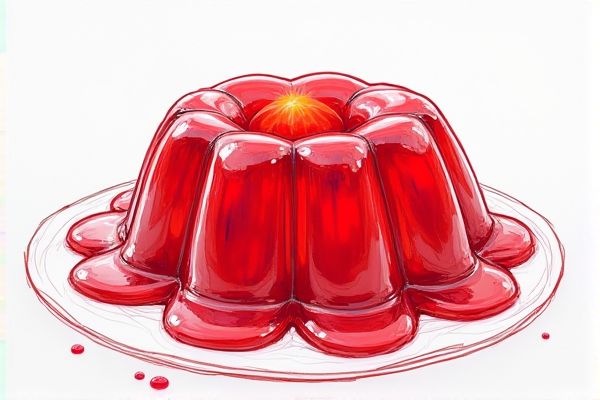
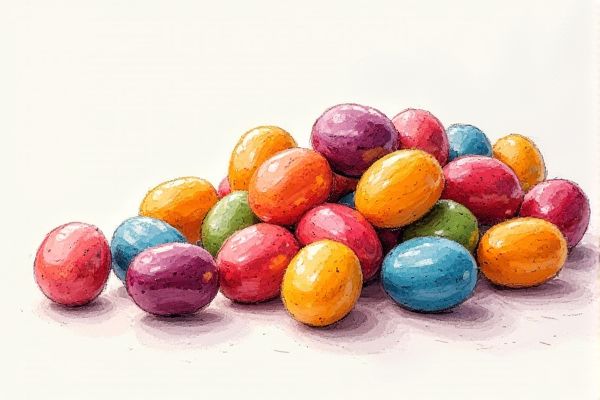
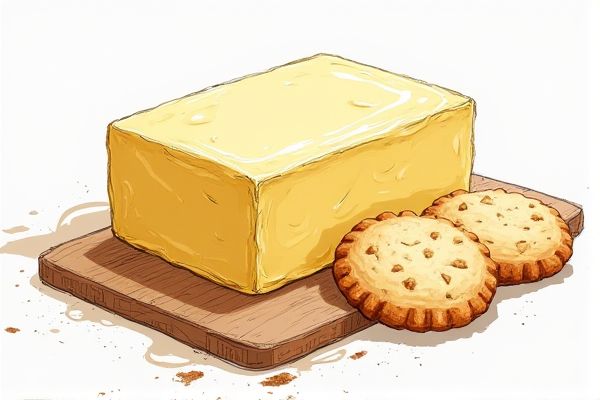

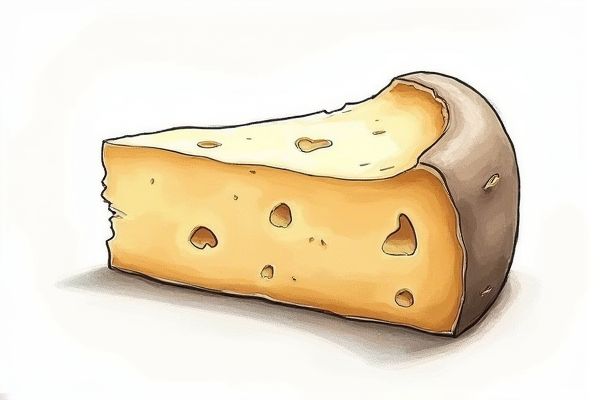
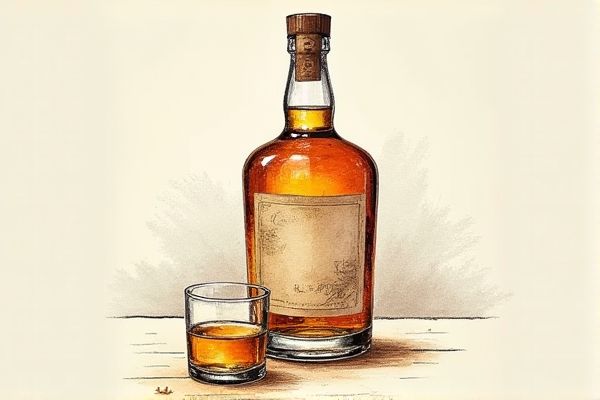
Leave a Reply
Your email address will not be published.